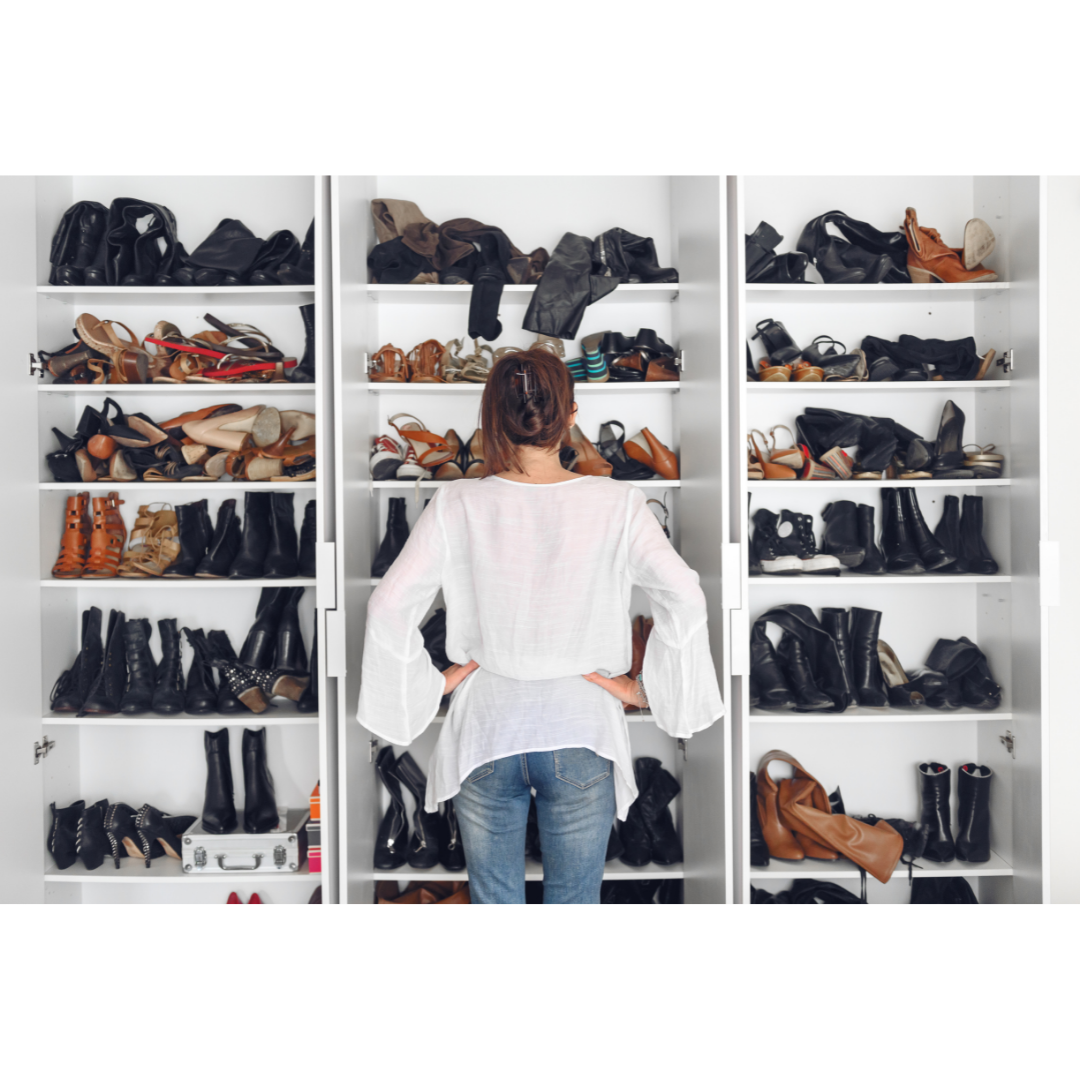Fear, Clutter, and Building Self-Trust
Fear. It’s one common emotion that makes the decluttering process especially challenging. How many times have you heard someone joke, “I can’t get rid of this. I might need it one day!” On the surface, this excuse sounds light and inconsequential. Yet for a majority of folks, it disguises their true concern: “I’m afraid if I let it go, I’ll be without.” Fear of not enough. Lack. Scarcity. The thought that you once owned something then “made the mistake” of giving it away drives many people to hold onto items longer than necessary. Building self-trust is the key to releasing both the fear and the clutter.
Fear: It’s Normal
Every moment of the day, your brain is gauging your level of safety. It’s your brain’s most primal task. Deep inside your psyche, your brain associates having ownership over an item as safe. If you own it, you can use it. That item puts you at an advantage in the race for survival.
Fear is the emotion it triggers when it senses that you are about to move towards an unsafe or unknown situation. Therefore, when you consider letting an object go, your brain protests. It sends out warning signals to override the rational, decision-making part of your brain. It works its hardest to convince you to keep what you already own. (Ironically, it will let you accumulate new items with the utmost ease.)
If you’re working alone, this unchecked fear may halt your decluttering progress. You’ll be more likely to set items aside. You’ll delay the decision necessary to letting them go. If you notice yourself hesitating to decide from a feeling of future scarcity, take a pause to investigate. How realistic is this fear you’re feeling?
It’s this pause that’s critical.
When I ask clients to explore what’s beneath the thought, “I might need it one day,” we discover that often their thought of “one day” is automatic. They haven’t stopped to imagine a situation in which they actually will need or use the item.
This is what I mean by questioning how realistic the impulse is to keep the item. Yes, the sensation of fear, of not having enough is real. Yet, using logic, ask yourself: When is “one day?”
Next, notice if you create and imagine scenarios in which you’ll use the item. It will sound like, “when so + so is older,” “when so + so comes to visit,” “when so + so asks about it.” These are excuses. If you’re engaging in this back-and-forth dialogue with yourself, you most likely don’t NEED the item. Be honest with yourself. You may want it, but if you needed it, you’d be wearing / using / displaying the item on a regular basis.
Building Self-Trust
Although it’s 100% human to want to keep what you have, when the overabundance becomes clutter, it’s time to build more self-trust to counterbalance the fear of lack.
When you’re in a mindset of scarcity, you’re not seeing the comfort and abundance currently present in your life. It can be tough to see all the clothing you do use, all the tools and appliances you do use, all the supplies you do use. You’re caught in the fear that you may feel an emotion such as regret in the future. Building self-trust is the key to the in-between.
Begin to ask yourself:
If I truly needed this item “one day,” do I trust that I’d be able to get it again?
If I truly needed this item “one day,” do I trust that I could afford to replace it?
If I truly needed this item “one day,” do I trust that I could find something similar?
Check in with yourself:
How safe will I feel to let this item go, and trust in myself to solve this at a later date?
How willing am I to feel regret or disappointment IF that day ever comes?
How many items have I let go of in the past? Have I needed them since?
Building self-trust is a practice.
Start by testing this theory. Take the unwanted items, put them in a box in the garage marked “donation.” Give yourself a time limit of 2 months. If you don’t go looking for the items, or need them in your daily activities, trust that it’s time for them to go. Trust that you know your life, your home, and yourself best. Trust that you’ll be able to live without this object. Trust that your life will be improved with less clutter and more space. Believe in yourself and your abilities more than the item that you think you’ll need one day. You’re in control. You’ve got this.
If you struggle with trusting yourself or having the confidence to make powerful decisions about what you own, reach out.
You’re not alone. I’d can help.

